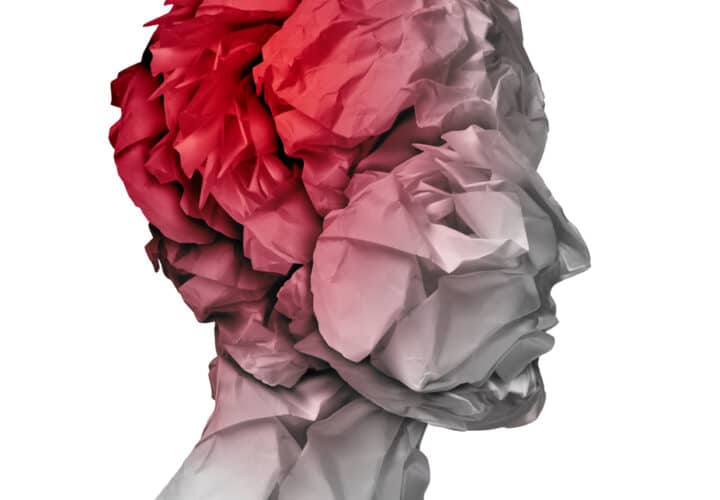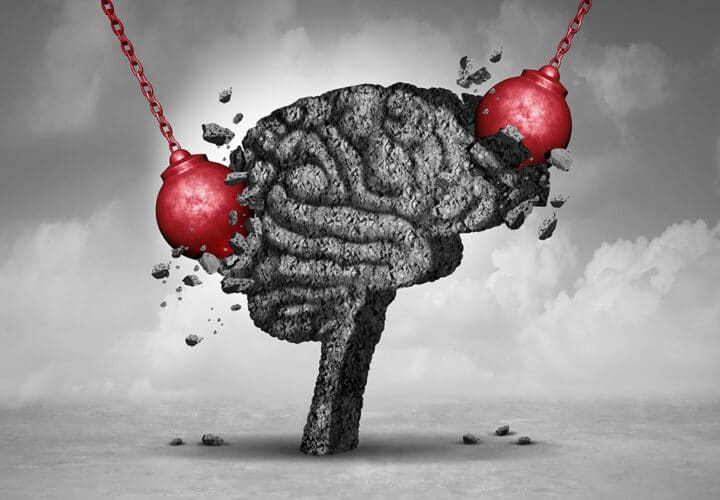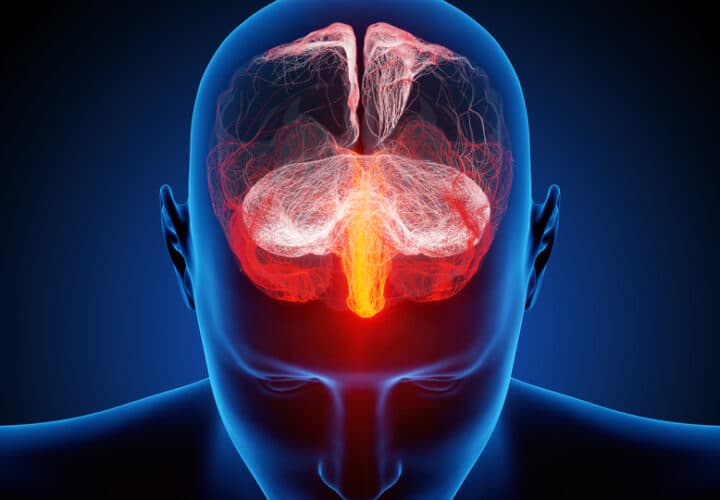Research shows that traumatic brain injury increases the risk for people to develop dementia at an earlier age.
We know by now that traumatic brain injury, or T.B.I., is a threat to cognitive health. In a study of 111 N.F.L. players’ brains, 110 had chronic traumatic encephalopathy, or C.T.E., the degenerative disease that can be caused by repeated hits to the head. C.T.E. causes problems like memory loss, depression and dementia. Now, scientists are seeing that not only does brain injury increase the risk of developing dementia, it also may cause it to happen earlier in life.
According to the Peter O’Donnell Jr. Brain Institute at University of Texas Southwestern, concussions and other traumatic brain injuries upped a patient’s diagnosis by two and a half years when compared to those who had never had a concussion. The study looked at 2,100 people with confirmed Alzheimer’s diagnoses through autopsy. They separated them into two groups: those who had never had a concussion, and those who sustained an injury that knocked them out cold for more than five minutes.
Football and other high-impact sports are under increasing scrutiny for exposing players to what could be lifelong damage. Just a few months ago, the N.F.L. quietly put a new concussion protocol into place, which included placing a neurotrauma consultant in the league’s command center for all games and a change in how soon players are allowed to return to the game after a potential concussion.
But even though this study pulled from a wide group of participants and used the most definitive method of diagnosis—autopsy—experts involved in the study are quick to point out that we still don’t know what happens during a T.B.I. that could speed up the onset of the disease.
“We need to be aware that brain injury is a risk factor, but parents shouldn’t keep their kids out of sports because they fear a concussion will lead to dementia,” said Dr. Munro Cullum, a neuropsychologist who oversaw the study and is leading the largest statewide effort in the U.S. to track concussions in youth sports. “This is a piece to the puzzle, a step in the direction of understanding how the two are linked.”
Scientists believe that the inflammation that occurs in the brain after an injury could set up the conditions that encourage dementia. But Cullum said a lack of data on brain injuries prevents researchers from coming to a conclusion about how this might happen. That may change over the next few decades as more evidence is presented in studies like this one on the link between T.B.I. and lasting brain effects. The N.C.A.A., for example, has started collecting concussion data on its athletes.
“But we have to wait 40 to 50 years until those college athletes are in their 60s and 70s to study them and know the outcome,” Cullum said. “That’s going to be a long wait. We need researchers now to start collecting this information as part of their routine studies. Until we have more detail, all we can look at are correlations.”
This study was published in the journal Neuropsychology.


